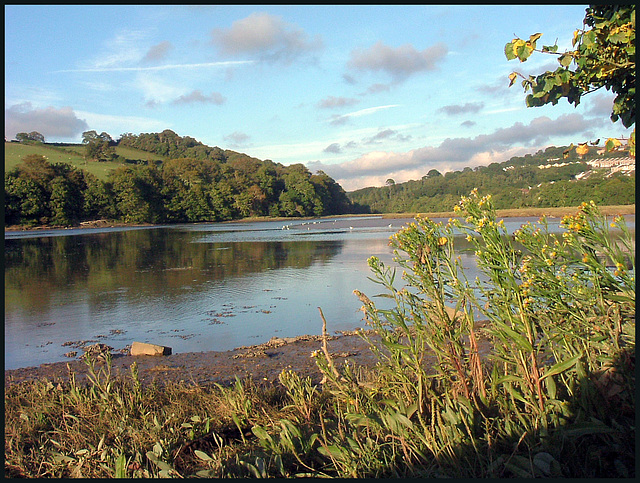creek in the evening sun
train at Black Bridge
spring at Tamerton Creek
down the creek
corner of Milford Lane
Kings Arms & St Marys Church
Kings Arms and St Mary's Church
Seven Stars at Tamerton Foliot
end of the creek
down Tamerton Creek
wild gladioli by the creek
Warleigh Nature Reserve
north from Warleigh Point
Tavy Bridge
17-arch Tavy railway bridge
rhodies by the Tavy
distant Dartmoor
distant Dartmoor hills
autumn down the creek
Budshead Creek
Woodvale Farm
Milford Lane
summer dawn of long ago
Budshead and Tamerton Creek
autumn in the creek
chimney on an autumn morning
view down Tamerton Creek
Visitors to Ernesettle
Edward goes to Ernesettle
Tamar Valley Railway
See also...
See more...Keywords
Authorizations, license
-
Visible by: Everyone -
All rights reserved
-
247 visits
- Keyboard shortcuts:
Jump to top
RSS feed- Latest comments - Subscribe to the comment feeds of this photo
- ipernity © 2007-2024
- Help & Contact
|
Club news
|
About ipernity
|
History |
ipernity Club & Prices |
Guide of good conduct
Donate | Group guidelines | Privacy policy | Terms of use | Statutes | In memoria -
Facebook
Twitter



Early in the fifth century, after the Romans had left Britain, the country was rapidly overrun by the invading armies of Jutes, Angles and Saxons, and the Celtic people were compelled to flee westwards taking refuge in Devon, Cornwall, and Wales. The invading hordes largely wiped out the Christian Church in the areas that they conquered, and Thor and Wodin usurped the place of Christ. But in the West the Church struggled on, strengthened by links with the Church and its leaders in Brittany and other parts of Gaul. One of these leaders was the missionary-minded Bishop, Budoc of Dol.
Budoc, grandson of the king of Brest, spent some of his childhood years in exile with his mother in Cornwall. On returning to Brittany the young lad was baptised by the Abbot of a nearby monastery and later became a monk himself. The details of his life are shrouded in legend, but we know that he was Bishop of Dol for twenty years. He died at the age of eighty-three in the year a.d.500 and is buried in the Cathedral at Dol.
About a.d.480, over a hundred years before St. Augustine built his first Church at Canterbury, a band of missionary monks sent out by Bishop Budoc crossed the Channel in an open boat from Brittany and sailed up the river Tamar landing somewhere in the shelter of the Ernesettle Creek. There they formed a settlement and built a little wattle church. It was to this settlement and to other similar ones that the Bishop himself would have come from time to time to make his pastoral visits and to encourage those whom he had sent out to preach and teach.
The name Budokshed, which in the Middle Ages was the surname of the family occupying the manor house in this area, is probably a corruption of Budok's hide, "hide" meaning a piece of land. Thus the manor of Budokshed is the manor on Budok's piece of land. If this is the true derivation of the name then it would seem that a piece of land down by the Tamar was regarded as belonging to Budok, and it was on this piece of land that the early churches were built.
Sign-in to write a comment.